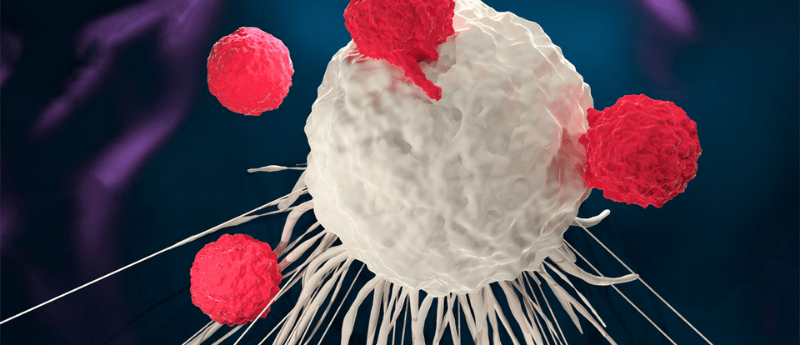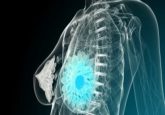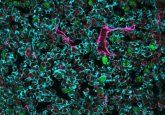Lower body weight and being physically active could reduce risk of dying from breast cancer

Published last autumn in the International Journal of Cancer*, a major review of published research highlighted that certain key factors could impact the risk of death for women after a breast cancer diagnosis.
As part of World Cancer Research Fund International’s Global Cancer Update Programme, housed at Imperial College London (UK), the review sought to understand the links between body weight, physical activity, diet and the risk of death after a breast cancer diagnosis.
Key findings of the review after a breast cancer diagnosis
Body weight
- Strong evidence that higher body weight, after diagnosis, increases the risk of death.
- In total, 226 studies were analyzed from around the world, comprising more than 456,000 women with breast cancer; among them, 36,000 women died, with 21,000 deaths attributed to breast cancer.
Physical activity
- There was some evidence that being more physically active could reduce the risk of death after a breast cancer diagnosis.
- Additionally, evidence that physical activity could reduce the risk of breast cancer recurrence.
- A total of 23 studies were analyzed from around the world, comprising more than 39,000 women with breast cancer; among them, approximately 5000 died, 2000 due breast cancer.
- Most studies looked at recreational physical activity, such as aerobics, walking and running, with limited studies on other types of activity.
Diet
- Some evidence that eating more dietary fibre could reduce the risk of death.
- Some evidence that eating soy could reduce the risk of death, as well as breast cancer recurrence.
- Some evidence that people with certain healthy eating patterns** have a reduced risk of death.
- Overall, 108 studies were analyzed from across the globe, comprising more than 151,000 women with breast cancer; among them, 14,900 died, 5900 of breast cancer.
Why are these findings important?
Breast cancer is the most common type of cancer among women in the UK, with 56,987 new cases in 2019. Three in 10 new cases of cancer diagnoses in women in 2019, was attributed to breast cancer.
In 2020, globally, breast cancer was the most common cancer among women. There were an estimated 2.3 million cases and 700,000 deaths. As of the end of 2020, there were 7.8 million women worldwide living at least 5 years after a breast cancer diagnosis.
Dr Helen Croker, Head of Research Interpretation at WCRF International commented: “For over 20 years our Recommendations have supported the creation of an environment where individuals can pursue, and governments can support, healthier choices to reduce cancer risk.”
“We now hope to develop a set of recommendations specifically for people living with and beyond cancer so that, alongside their healthcare team, they have the latest evidence-based information about healthy eating, physical activity and weight. Analyzing and interpreting the existing literature is the first step towards these efforts.”
Nikki Bednall, diagnosed with Stage III breast cancer in 2017, explained: “After my diagnosis and treatment, I made a few lifestyle changes to reduce my risk of health problems. These included maintaining a healthy weight, eating a variety of healthy foods and exercising regularly.”
“I know from experience the feeling of jumping through hoops after a cancer diagnosis. However, as the evidence from these reviews gets stronger it gives me greater confidence that there are things I can do to help improve my chances of living beyond my breast cancer.”
Keep up to date with the latest research
Take advantage of World Cancer Research Fund’s free package for health professionals to keep up to date with the latest research on cancer prevention and survival.
The package includes a quarterly newsletter, free resources, and access to our CPD accredited online cancer prevention course.
Find out more at: www.wcrf-uk.org/package
—–
*All four published papers can be found here:
Tsilidis KK, Cariolou M, Becerra-Tomás N, Balducci K et al. Post-diagnosis body fatness, recreational physical activity, dietary factors and breast cancer prognosis: Global Cancer Update Programme summary of evidence grading. Int. J. Cancer 152(4), 635−644 (2023).
Cariolou M, Abar L, Aune D, Balducci K et al. Post-diagnosis recreational physical activity and breast cancer prognosis: Global Cancer Update Programme systematic literature review and meta-analysis. Int. J. Cancer 152(4), 600−615 (2023).
Chan DSM, Vieira R, Abar L, Aune D et al. Post-diagnosis body fatness, weight change and breast cancer prognosis: Global Cancer Update Programme systematic literature review and meta-analysis. Int. J. Cancer 152(4), 572−599 (2023).
Becerra-Tomás N, Balducci K, Abar L, Aune D et al. Post-diagnosis dietary factors, supplement use and breast cancer prognosis: Global Cancer Update Programme systematic literature review and meta-analysis. Int. J. Cancer 152(4), 616−634 (2023).
** In these studies, the dietary patterns were specific patterns such as a low fat and high fibre/ fruit/ vegetable diet and following the WCRF/ AICR Cancer Prevention Recommendations.
Interviewee profile:
Rachel Clark
Nutritionist and Health Promotion Consultant
Rachel Clark is a Registered Public Health Nutritionist and a Health Promotion Consultant. She works with health professionals to increase their awareness and understanding of the lifestyle-related risk factors for cancer.





